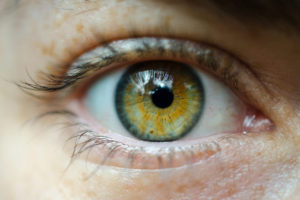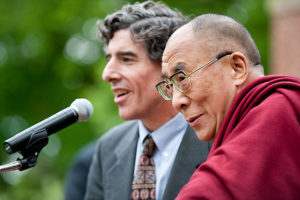Center for Healthy Minds researchers are launching a new series of studies to understand how laboratory measures of virtuous qualities such as compassion relate to their behavior in the real world.
Richard Davidson, founder of CHM at the Waisman Center, has received a three-year, $1.7 million grant from the John Templeton Foundation to develop laboratory and real-world measures of virtuous qualities such as altruism and compassion.
This work builds on Davidson’s earlier work with the Waisman Lab for Brain Imaging and Behavior, which has used functional magnetic resonance imaging (fMRI) to document changes in the brains of monks and other practitioners of meditation and related contemplative practices.
In this new series of studies, researchers will create both laboratory and real-world measurements to track changes in brain function and behavior.
“We will be tracking changes in the neural correlates of virtuous character traits such as compassion, kindness and altruism,” says Davidson, the Vilas Professor of Psychology and Psychiatry. “Then, we want to see if the changes we can see in the brain in the scanner are correlated with changes in everyday life.”
In one specific study, research participants will learn “compassion meditation” – which teaches them to visualize and wish for an end to the suffering of loved ones, strangers, themselves, and eventually, difficult people.
Then, researchers will track changes in their brains and in their everyday behavior to understand the extent to which measures of brain function predict real-world changes in these qualities.






